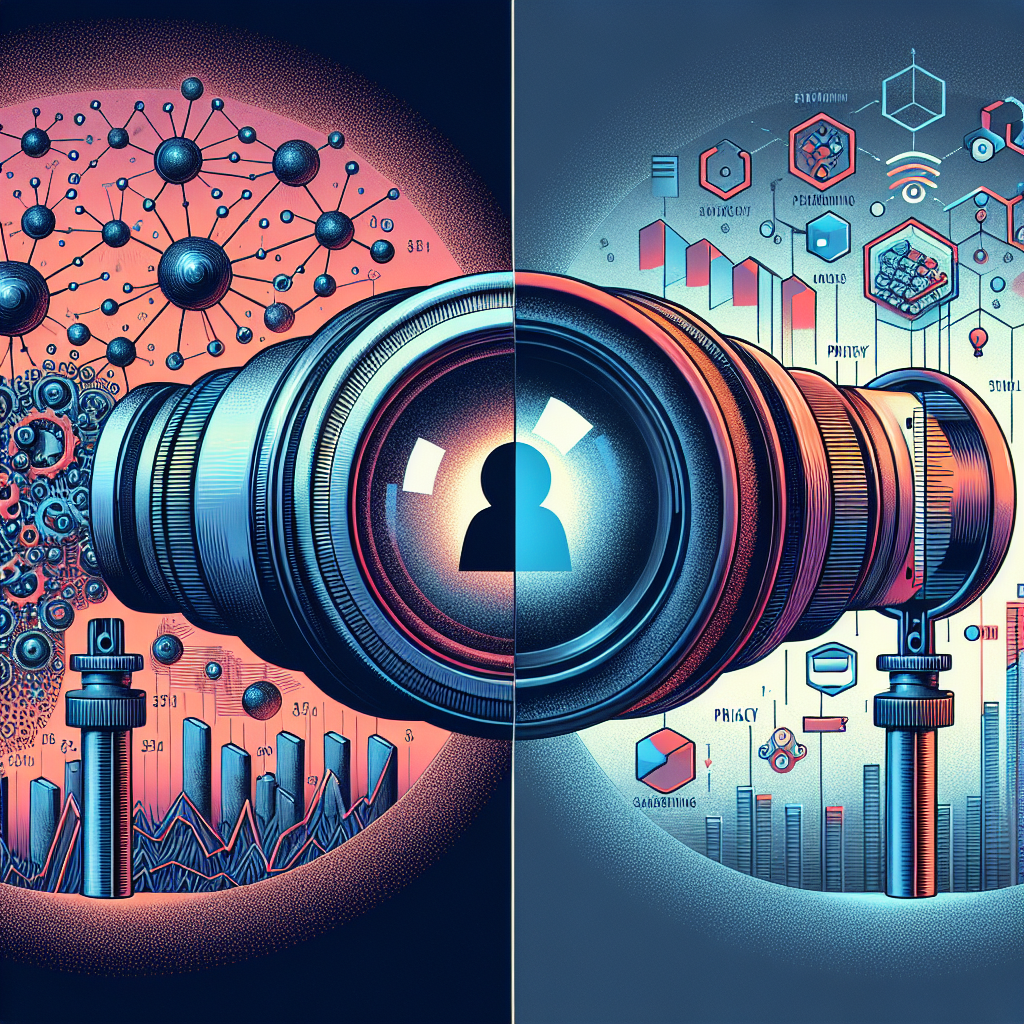In today’s digital age, predictive analytics powered by artificial intelligence (AI) has become an increasingly popular tool for businesses to harness the power of big data and make informed decisions. From predicting customer behavior to optimizing operations, AI-powered predictive analytics has the potential to revolutionize industries across the board. However, with great power comes great responsibility, and the use of AI in predictive analytics raises serious concerns about privacy risks.
Privacy Risks of AI-Powered Predictive Analytics
1. Data Breaches: One of the biggest privacy risks associated with AI-powered predictive analytics is the potential for data breaches. As businesses collect and analyze vast amounts of data to make predictions, they also become prime targets for cyber attacks. If sensitive customer information falls into the wrong hands, it can lead to serious consequences for both the individuals affected and the company responsible.
2. Profiling and Discrimination: AI algorithms used in predictive analytics have the ability to create detailed profiles of individuals based on their data. While this can be useful for targeting marketing efforts or improving customer service, it can also lead to discriminatory practices. For example, if an algorithm unfairly targets certain demographics or uses biased data to make predictions, it can perpetuate existing inequalities and harm vulnerable populations.
3. Lack of Transparency: Another privacy risk of AI-powered predictive analytics is the lack of transparency in how algorithms make decisions. Many AI systems operate as “black boxes,” meaning that their inner workings are opaque and difficult to interpret. This lack of transparency can make it challenging for individuals to understand why certain predictions are being made about them, leading to distrust and concerns about privacy.
4. Consent and Control: In the age of AI-powered predictive analytics, individuals may have limited control over how their data is being used and shared. This raises important questions about consent and the right to privacy. If individuals are not aware of how their data is being used or are unable to opt out of certain data collection practices, their privacy rights may be compromised.
5. Stigmatization: AI algorithms used in predictive analytics have the potential to stigmatize individuals based on their data. For example, if an algorithm predicts that someone is at high risk for a certain health condition, they may face discrimination from insurers or employers. This can have serious implications for individuals’ privacy and autonomy.
FAQs
Q: How can businesses mitigate the privacy risks of AI-powered predictive analytics?
A: Businesses can mitigate privacy risks by implementing robust data security measures, ensuring transparency in how algorithms make decisions, obtaining informed consent from individuals, and regularly auditing their AI systems for bias and discrimination.
Q: What role can regulators play in addressing privacy risks associated with AI-powered predictive analytics?
A: Regulators can play a key role in setting guidelines and standards for the responsible use of AI in predictive analytics. By enforcing data protection laws, promoting transparency, and holding businesses accountable for their data practices, regulators can help protect individuals’ privacy rights.
Q: How can individuals protect their privacy in the age of AI-powered predictive analytics?
A: Individuals can protect their privacy by being cautious about sharing personal information online, using privacy-enhancing tools such as VPNs and encryption, and being aware of how their data is being used by businesses and organizations.
In conclusion, while AI-powered predictive analytics holds great promise for businesses, it also poses significant privacy risks that must be carefully managed. By addressing data security concerns, promoting transparency, obtaining informed consent, and safeguarding against bias and discrimination, businesses can harness the power of AI in a responsible and ethical manner. By taking these steps, businesses can not only protect individuals’ privacy rights but also build trust and credibility with their customers.

